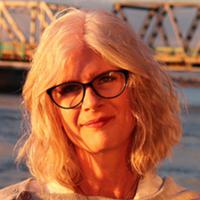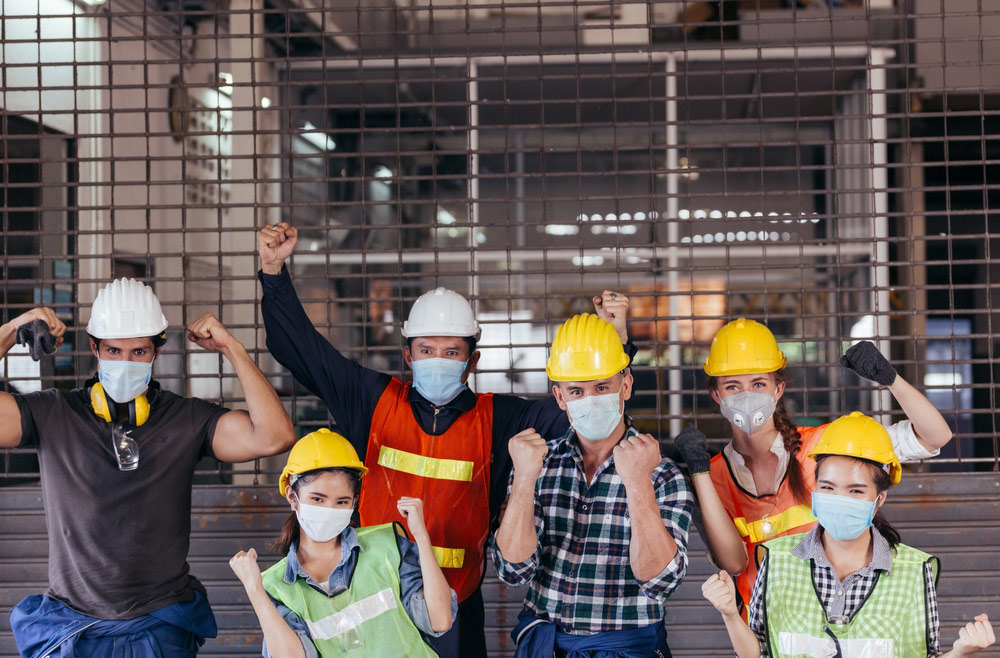I’ve had lots of jobs.
As a teen, I washed dishes at an Italian fast-food restaurant, and sold toys and pet budgies at Woodward’s department store in downtown Vancouver. I was a video rental clerk peddling VHS and Betamax copies of Top Gun and Flashdance. The money was as poor as the hours, and paid sick days were things my parents got, not me. If I had any hope of keeping my 1971 Dodge Colt in gas and oil for the week, I had to be on death’s door before calling in sick.
Let’s just say that a few people who rented Top Gun from me probably also developed the common cold.
But once I became an adult and started working full time in jobs that were supposed to support a family, my employment benefits included paid sick days. Their plenitude varied by employer, but there was always at least a handful available, so that a sick worker could take a day or two off to recover from some bug they picked up at the video rental store.
So it came as a surprise to learn some years ago that most construction workers don’t get paid sick days.
“What?” I asked, flabbergasted, when my partner struggled out of bed one morning and asked me to help him get dressed because the pain in his back was so bad he couldn’t bend over to reach his pants, let alone put them on independently.
“Take a sick day,” I commanded.
“We don’t get sick days,” he squeaked and winced simultaneously. “It’s construction.”
He explained construction work is project-based, and if you aren’t working on said project, don’t expect to be paid for your time.
I helped him with his pants, shirt, socks and boots. Then he stumbled off to work for a construction contractor. His boss was sympathetic, but not enough to send him home. Instead, he helpfully suggested to my partner that he visit the chiropractor near the job site on his lunch break, which he did. Does anyone see the irony in having chiropractic coverage, but not paid sick days?
One doesn’t need a lot of paper to connect the dots between construction work, pain, prescription drugs and opioid use. Research says we can add another dot for unpaid sick days, too.
According to a study by the American Journal of Public Health, the highest prevalence of opioid use disorder and opioid overdose deaths are among people with physical jobs such as construction, precarious work and no access to paid sick time.
The study found that construction workers in particular have higher rates of back and other types of musculoskeletal pain and, correspondingly, pain relief is the number one reason for misuse of prescription pain relievers. Fifty-seven per cent of the opioid-related deaths in the dataset came after a workplace injury.
Granted, this is an American study, conducted in a country notorious for a medical system that favours the rich and shuns the poor. However, our own data correlates: a 2018 report from the BC Coroners Service found that 55 per cent of employed people who died of an illicit drug overdose worked in the skilled construction trades (staggering, when construction workers represent only nine per cent of the B.C. workforce).
Put it all together, and you can fairly conclude that construction workers go to work when they’re in pain, and sometimes they use opioids to manage it.
Of course, mere paid sick days will not solve the opioid crisis — the crisis is also fuelled by the “get ’er done” culture borne of the force and fury of every construction project ever completed — but they’ll help.
The BC NDP government will introduce employer-paid paid sick days in January. The public announcements around the consultation and implementation process have largely emphasized the assistance this would especially bring to B.C.’s lowest paid workers.
While that’s undoubtably correct, paid sick days will also help those who put their bodies in harm’s way to continue to build our communities. ![]()
Read more: Health, Rights + Justice, Labour + Industry
















Tyee Commenting Guidelines
Comments that violate guidelines risk being deleted, and violations may result in a temporary or permanent user ban. Maintain the spirit of good conversation to stay in the discussion.
*Please note The Tyee is not a forum for spreading misinformation about COVID-19, denying its existence or minimizing its risk to public health.
Do:
Do not: